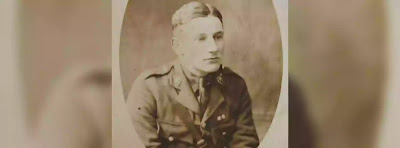Also Read
Edmund Charles Blunden (1896-1974), who was educated at Christ's Hospital and Oxford, saw service with the Royal Sussex Regiment in the 1914-1918 War and was decorated for gallantry. In 1922 he won the Hawthornden Prize for The Shepherd, and from 1924 to 1927 was Professor of English Literature at Tokyo University. He returned to Oxford as a Fellow of Merton College (1931-1943), and, after the Second World War, he was appointed (1948) a member of the British Liaison Mission in Japan, where he did much lecturing. Few modern poets have been more deeply rooted in the central tradition of English poetry than Edmund Blunden.
Blunden is primarily a pastoral poet, seeking inspiration in the sights, sounds, and smells of the English countryside, subjects which he has handled with a Shelleyan lucidity and a technical subtlety which has yet allowed the authentic rural spirit to shine through his verse.
A prolific writer, Blunden first came to notice as a contributor to the later volumes of Georgian Poetry, and his popularity has remained unimpaired, even though later opinion has reacted against the Georgian school as a whole. As can be seen in some of his more horrific war poems, his experience in the First World War was not without its effect on his verse, but the impact was not sufficient to make any radical change in the nature of his art. His interest in peace and beauty of nature, the accuracy of his observation, his delight in delicate rhythms, and that fondness for archaisms which aroused the interest of Robert Bridges in Blunden's earliest work, all are still to be found in Shells by a Stream (1944), which contains many of his finest lyrics.
In prose, too, Blunden shows his delight in the musical subtleties of our language and a remarkable felicity of phrase, and he has produced work of lasting merit not only in literary biography but also in his books on rural England.
Of his collections of poems we may mention Pastorals (1916). The Waggoner and other Poems (1920), English Poems (1925), Choice or Chance (1934), Poems 1930-1940 (1941), Shells by a Stream (1944), and After the Bombing (1948). His painting of the English scene is to be found in The Face of England (1932), English Villages (1941), and Cricket Country (1944), while among his biographies are Leigh Hunt (1930), Thomas Hardy (1942), and Shelley (1946).
